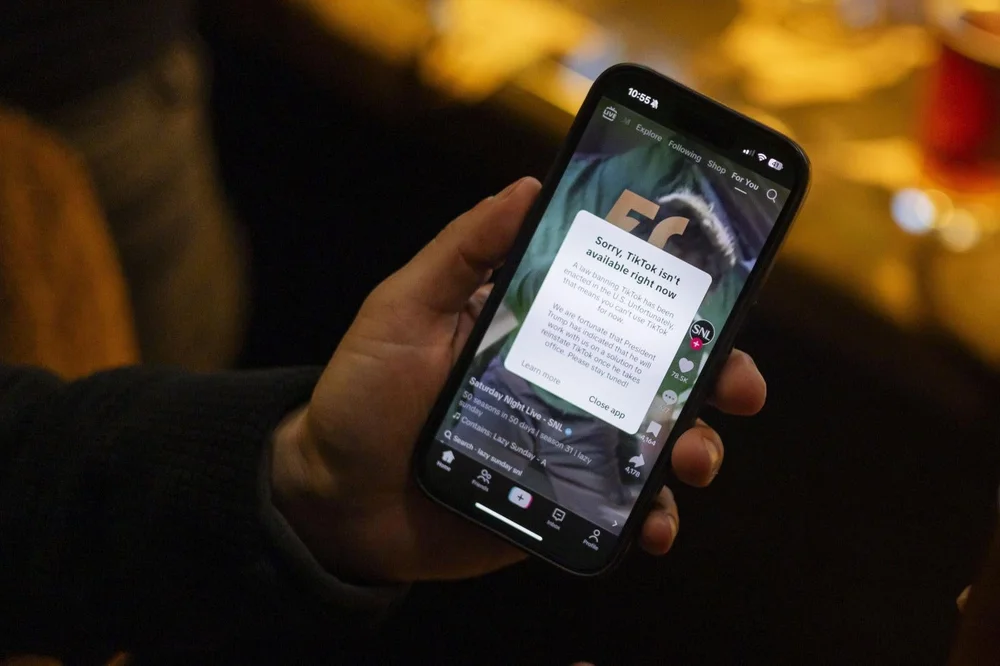TikTok Faces Potential Ban in the United States

In a significant development that could impact the social media landscape, TikTok, the popular video-sharing app, is facing the possibility of being banned in the United States. This move is part of a broader scrutiny of the app due to concerns over data privacy and national security.
Background and Concerns
TikTok, owned by the Chinese company ByteDance, has been under intense scrutiny from U.S. lawmakers and regulators. The primary concern revolves around the potential for the Chinese government to access user data, given China's laws that require companies to cooperate with government requests for data.
Recent Developments
On January 19, 2025, it was reported that the U.S. government is considering a ban on TikTok, a move that would follow similar actions taken by other countries. This consideration is part of a larger effort to protect American users' data and ensure national security.
Impact on Users
If the ban is implemented, it would significantly affect the millions of TikTok users in the United States. The app has become a staple for many, especially among younger generations, who use it for entertainment, social interaction, and even as a platform for creative expression.
International Context
The potential ban in the U.S. is not an isolated incident. Other countries, such as India, have already banned TikTok due to similar concerns. The European Union has also been scrutinizing the app, reflecting a global trend of increased regulatory oversight on social media platforms.
Reactions and Responses
TikTok has consistently denied any wrongdoing and has emphasized its commitment to user privacy and security. The company has implemented various measures to address these concerns, including storing U.S. user data on servers within the country and establishing a transparency center to monitor data access.
Implications for Expats in Spain
For expats living in Spain, the potential ban on TikTok in the U.S. may have indirect implications. While the ban would not directly affect users in Spain, it could influence how other European countries approach the regulation of social media platforms. Additionally, any global changes in how data is handled could have broader implications for online privacy and security.
Conclusion
The potential ban on TikTok in the United States highlights the ongoing debate about data privacy, national security, and the role of social media in modern society. As the situation evolves, users and regulators alike will be watching closely to see how this unfolds and what it might mean for the future of social media.
Related Stories

Global Outage Hits Meta Platforms: WhatsApp, Facebook, and Instagram Down for Hours
A global outage affected WhatsApp, Facebook, and Instagram, disrupting millions. Meta worked swiftly to resolve the issue, marking its second major disruption in 2024.

Creating a Safe Digital Environment: A Crucial Step for a Healthy Childhood in Spain
Spain takes significant steps towards ensuring children's online safety amid rising concerns, introducing the world's first mobile tariff with built-in child protection and emphasizing digital literacy and global cooperation.

Spain's Progress and Challenges in the EU's Digital Decade and Economic Landscape
Spain advances in digital transformation and economic growth, yet faces hurdles in cloud adoption, ICT specialist recruitment, and youth unemployment as 2024 ends.

Worldcoin Ordered to Delete User Iris Data Following GDPR Violations
Worldcoin faces a GDPR compliance challenge as it's ordered to delete European users' iris data, highlighting the clash between innovative tech and data protection laws.

Torrelavega’s Tecnoteca Project Nears Completion, Set to Open in 2025
Torrelavega's Tecnoteca project, a hub for innovation and education, is set to open in 2025, promising to transform the local landscape in Cantabria, Spain.